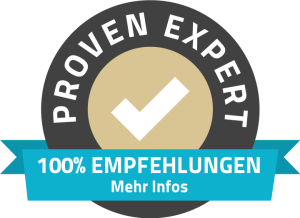How to successfully master a job interview!
“The applicant’s body language should be congruent with what is being said and the advertised position.”
You have cleared the first hurdle and received an invitation for an interview. Congratulations! The next obstacle on your path to the new job awaits.
XING Coaches: Are there things I should definitely pay attention to?
Birgit Löding: When entering the conversation, the applicant is often handed the ball with the question, “Tell me something about yourself.” It is important for the applicant not to assume that the information from the application folder is still fresh in the employer’s mind when answering this question and subsequent ones. Instead, the conversation should be used to present oneself as thoroughly as possible from the ground up. Often, on the employer’s side, there are so many interviews and meetings in a day that they may hardly remember why the applicant was originally invited. Therefore, the question about one’s personal background should cover the most important criteria and keywords from the job posting’s requirements profile.
XING Coaches: How far should I go back in my past experiences?
Birgit Löding: Employers are most interested in the last five to ten years of work experience. Specifically, you should highlight practical examples, leadership experience, participation in projects, international experiences, further education, etc., that are directly related to the job posting’s requirements. Only if it is explicitly requested should you chronologically discuss your background from the end of your schooling to the present day.
A concise presentation of one to three minutes is usually sufficient. What you say should be well-structured and clearly formulated, inviting the employer to ask follow-up questions. It is particularly effective if your self-presentation already conveys motivation and enthusiasm: “I particularly enjoy building and leading international teams.” If this introduction is well-prepared, and the employer can successfully check off their requirements for the position while listening, it sets a good tone for the interview. Psychologically, it is very difficult to overturn such a good first impression. Of course, it is equally challenging to turn a negative impression into a positive one.
XING Coaches: How important is my body language and posture in this context?
Birgit Löding: Sympathy is also generated by adjusting aspects such as volume and pace to the host. If there is a significant gap in these aspects, it can be difficult to establish interpersonal rapport. The applicant’s body language should be congruent with what is being said and the advertised position – in other words, a leader who speaks softly and has an intimidated posture raises doubts about their competence. It is worth evaluating your own body language through coaching using video recordings and regularly seeking feedback on your nonverbal communication. It is helpful to place both feet parallel on the floor and avoid crossing your legs to have better stability. Your hands and arms can be rested on the table up to your elbows.
XING Coaches: How do I control my nervousness?
Birgit Löding: Nervousness is a normal reaction to this exam-like situation and can naturally be higher when this interview holds significant personal importance. With good preparation and practice, nervousness can be reduced. Therefore, it is recommended to accept interview invitations even if you are almost certain you would not accept the position. After approximately two to four interviews, you gain so much practice that very little can shock you. Until then, it is definitely wise to consider personal relaxation strategies in addition to thorough preparation, which you practice before the interview. This can include autogenic training, yoga, walks, or endurance sports.
XING Coaches: How do I handle provocative questions?
Birgit Löding: In general, it is essential to remain calm when faced with provocative questions and to answer the question objectively without showing your own anger or insecurity. You can buy some time for answering with introductions like “Good question…” or “Let me think for a moment…” This not only gives you more time to respond but also reduces tension in the situation and shows that you have the situation under control.
XING Coaches: What should I do when asked questions like, “After 15 years with the same employer, can you really envision adapting to our company flexibly?”
Birgit Löding: Here, use examples to demonstrate how you have constantly developed within the company. For instance, by participating in or leading cross-departmental or international projects, taking on technical and managerial roles, changing positions, continuous learning, etc. This way, you can substantiate your flexibility, motivation, and adaptability.
XING Coaches: Aren’t you overqualified for this role?
Birgit Löding: In this case, you should show the employer that you see a long-term perspective for yourself in the position and have already thought about the situation of being underutilized. You can always seek new challenges within the role, make the situation more demanding by building new structures, optimizing processes, introducing products, sharing knowledge with colleagues, or pursuing further education.
XING Coaches: What questions am I allowed to ask?
Birgit Löding: The more the applicant engages with questions about the position and the company, the more dialogical and equal the conversation becomes. Of course, the rule “He who asks, leads” applies. Since the invitation comes from the employer, they should be respected as the host, and the greater share of questions should remain with the employer. Questions that the applicant can ask effectively include:
- Why is the position vacant?
- Is my predecessor still available for questions within the company or elsewhere?
- Who will be responsible for my training?
- What do you expect from me in the first six months?
- How will the selection process proceed?
Non-binding initial consultation
Discuss your career strategy with us in a personal, free initial meeting. We will analyse your individual needs and show you a realistic time frame for your plan.
You have the choice:
- on site in our offices
- virtual
Call us: 0211 / 86286283 or book an appointment with us directly online.


